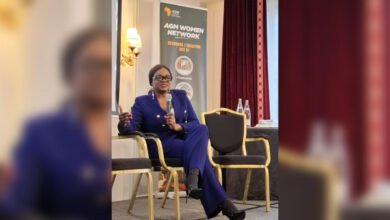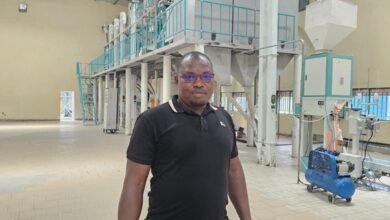« E-Learning as a solution to inclusive education »
In Africa, 62% of the population is under 25 years old. The number of people on the African continent, currently 1.4 billion, is expected to reach nearly 2.6 billion by 2050. As a result, the demand for education continues to grow, bringing governments, civil societies, and professionals across Africa to face up to major challenges.
By Maguette Mbow
Founder and CEO « Africa is Chic World »
Lecturer in digital innovation and digital transformation
Read more : « E-Learning as a solution to inclusive education »By 2030, young Africans will represent more than 600 million individuals, to be professionally integrated, for only 740 universities across the continent.
Besides this clear imbalance, there are other challenges. Starting with the logistical difficulties and the lack of teaching facilities in Africa. The cost of international education is out of reach for the average African household. The social shock and family separation impacting African students abroad who often stay for years without returning to Africa. The risk of permanent « export » of African intelligentsia, trained in fields that do not exist in Africa. The inadequacy of training programs in relation to the evolving needs of the market. The insufficient number of Africans with post-baccalaureate degrees (less than 10% in sub-Saharan Africa). Finally, digital inclusion, a top priority (access to internet, energy, digital tools, knowledge platforms adapted to Africa).
Today, more than half of the world’s out-of-school children live in Africa. Girls and rural areas are the most affected by this situation. Furthermore, African higher education faces major challenges, including the growth in student enrollment, which is linked to a lack of planning of facilities and insufficient resources. Africa will have 9 600 000 active students in higher education in 2022.
Educational platforms, E-learning and software programs are developed by African companies such as TooShare, Gomycode…
In the aftermath of the global pandemic crisis, more and more governments are recognizing the opportunities offered by new technologies for solutions that promote equitable access to education and training and the acquisition and strengthening of skills and capacities, improve the quality of learning and teaching, and economically empower people in an often-unstable economic context.
Investment in new educational infrastructure is proving to have a wider impact on the personal and professional development of African communities by encouraging them to participate in today’s knowledge-based global economy.
In parallel, several large-scale infrastructure projects, led by the Smart Africa alliance, in collaboration with African states, are strengthening connectivity and the digital transition on the continent. This is done with the dematerialization of procedures, access to high-speed internet, but also to mobile technologies and equipment with notably low-cost access to « low-cost » smartphones, specifically targeting the African market. Thus, the cell phone is becoming the most used communication tool in Africa to connect, interact and share content.
In parallel to this rapid market expansion, educational platforms, software (Learning Management System) and e-learning programs are developed by African companies such as TooShare, Gomycode…
« At a time when Africa is moving towards the creation of a single market with the AfCFTA, e-learning should help change the situation«
However, despite these investments, systemic problems persist in African communities that hinder progress: lack of qualified teachers, lack of material resources, content unsuitable for E-learning and irrelevant to the job market, etc.
Although technologies can improve access to education, they also increase inequalities between urban and rural populations. The major objective is to reduce this « digital divide » on the continent to democratize education in Africa and make it accessible to millions of young people to allow them to realize their full potential. The latter, which today, is held back by the social, cultural and economic filter at the current stage of emergence of the continent.
At a time when Africa is moving towards the creation of a single market with the AfCFTA, E-learning must change the situation through its immersive and inclusive digital educational innovations, with online teaching solutions to all teaching & learning communities (urban and rural) in Africa. The aim is to ensure educational continuity and inclusion, improve school enrolment rates, promote the professional integration of young people and the development of entrepreneurship, in the service of human development and the well-being of African populations.
Maguette MBOW’s background, Founder of » AFRICA IS CHIC WORLD
Of Senegalese origin, Mr. Maguette MBOW is an entrepreneur and professor in digital innovation and digital transformation of companies, public and private institutions. Maguette MBOW has worked for more than 20 years as director of the digital department and digital strategy for the largest European multinationals, before founding AFRICA IS CHIC WORLD (Platform of economic, social and cultural innovations for Africa). Maguette MBOW is passionate about industrialization and digital transformation in Africa. With his experience, he helps governments and private companies to relocate creative industries in Africa, particularly in the digital, fashion, textile and design educational programs for entrepreneurship and multi-sectoral employability of young people in Africa.
Context, vocation and goals of « AFRICA IS CHIC WORLD
AFRICA IS CHIC WORLD is a new platform of economic, social and cultural innovations generating well-being, industries, startups and jobs in Africa. The idea is to promote a positive image of Africa and contribute to the industrialization and digital transformation of the continent, in collaboration with the private and public sectors to generate creative industries, developing entrepreneurship and employability of Africans on the Continent. The company works on the promotion of 9 sectors of activities identified as sources of employment for the Continent.






